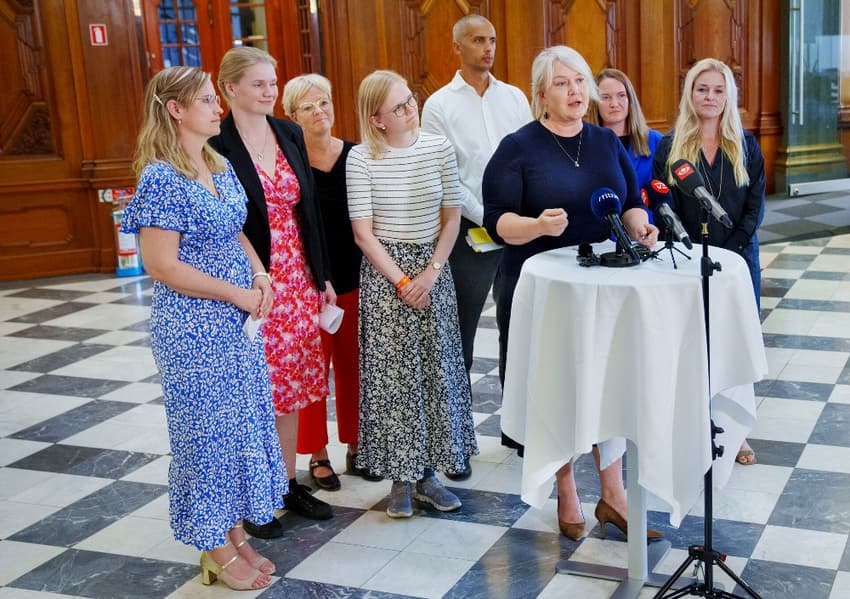Denmark to boost English-language university places in education reform

A higher education reform announced by a majority in the Danish parliament on Tuesday will see up to 2,500 places available on degrees taught in English, while up to a third of all Master’s degrees will be shortened or restructured.
The reform, announced by the Ministry of Higher Education and Science, is the result of an agreement between the government and four opposition parties: the Socialist People’s Party (SF), Liberal Alliance, the Conservatives and the Denmark Democrats.
That gives the planned changes to higher education support from both the left and right wings.
Included in a series of reforms to Danish university education will be an increase in the number of places available on degrees taught in English.
“The universities can offer 1,100 English-language places on ordinary Master’s degree programmes each year in the period 2024-28 and 2,500 places annually from 2029,” the higher education ministry stated.
“In addition to this, the ambition is for over half of the places on working Master’s degree programmes to be filled by international students,” it said.
Working Master’s degrees or erhvervsuddannelser in Danish are Master’s degree programmes in which the normal two-year degree is structured over four years, enabling the student to work alongside their studies.
Education spokesperson with coalition government party the Moderates, Karin Liltorp, praised the decision to increase the availability of places for international students.
“I’m very happy that we’re going to allow more international students – and generally create a more flexible education system. The need for skilled young people on the labour market is enormous, including within green transition,” Liltorp said in a statement.
Other key elements of the plan include a reduction of the overall intake on Bachelor’s degrees by 8 percent, while a third of Master’s degrees will either be shortened or restructured.
Around 10 percent of existing Master’s degrees will be shortened from two years to just over one, while 20 percent will become Working Master’s degrees.
A draft proposal for the higher education reforms was presented by the government earlier this year.
The earlier draft of the reforms proposed a much higher proportion of the degrees be shorted, up to 50 percent.
That figure was reduced to 10 percent following negotiations and eventual agreement over the reforms with opposition parties.
Comments
See Also
The reform, announced by the Ministry of Higher Education and Science, is the result of an agreement between the government and four opposition parties: the Socialist People’s Party (SF), Liberal Alliance, the Conservatives and the Denmark Democrats.
That gives the planned changes to higher education support from both the left and right wings.
Included in a series of reforms to Danish university education will be an increase in the number of places available on degrees taught in English.
“The universities can offer 1,100 English-language places on ordinary Master’s degree programmes each year in the period 2024-28 and 2,500 places annually from 2029,” the higher education ministry stated.
“In addition to this, the ambition is for over half of the places on working Master’s degree programmes to be filled by international students,” it said.
Working Master’s degrees or erhvervsuddannelser in Danish are Master’s degree programmes in which the normal two-year degree is structured over four years, enabling the student to work alongside their studies.
Education spokesperson with coalition government party the Moderates, Karin Liltorp, praised the decision to increase the availability of places for international students.
“I’m very happy that we’re going to allow more international students – and generally create a more flexible education system. The need for skilled young people on the labour market is enormous, including within green transition,” Liltorp said in a statement.
Other key elements of the plan include a reduction of the overall intake on Bachelor’s degrees by 8 percent, while a third of Master’s degrees will either be shortened or restructured.
Around 10 percent of existing Master’s degrees will be shortened from two years to just over one, while 20 percent will become Working Master’s degrees.
A draft proposal for the higher education reforms was presented by the government earlier this year.
The earlier draft of the reforms proposed a much higher proportion of the degrees be shorted, up to 50 percent.
That figure was reduced to 10 percent following negotiations and eventual agreement over the reforms with opposition parties.
Join the conversation in our comments section below. Share your own views and experience and if you have a question or suggestion for our journalists then email us at [email protected].
Please keep comments civil, constructive and on topic – and make sure to read our terms of use before getting involved.
Please log in here to leave a comment.